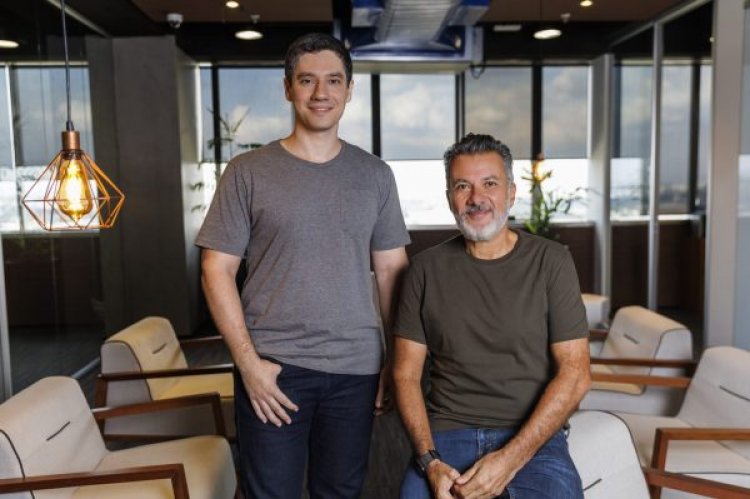Brazilian fintech infrastructure company Dock closes on $110M in funding, now valued at over $1.5B
If there’s one area that has thus far felt insulated from the global venture downturn, it’s infrastructure. Companies that offer banking as a service and help other businesses offer their own financial services and products in particular continue to rake in the dollars. The latest such company in Latin America is São Paulo-based Dock, which […]

If there’s one area that has thus far felt insulated from the global venture downturn, it’s infrastructure. Companies that offer banking as a service and help other businesses offer their own financial services and products in particular continue to rake in the dollars.
The latest such company in Latin America is São Paulo-based Dock, which operates a full-stack payments and digital banking “platform” across the region, where demand for financial infrastructure that can help boost inclusion is massive. The startup has raised $110 million in a growth funding round led by U.K.-based Lightrock and Silver Lake Waterman, bringing its valuation to over $1.5 billion. Existing backers Riverwood Capital, Viking Global Investors and Sunley House Capital also participated in the financing.
Dock is the product of a unification of three brands — Conductor, Dock and Muxi — that were combined in August 2021 to offer “complete” financial services and end-to-end tech for the payment and digital sectors. Conductor was a 25-year-old, 80-person company that processed credit cards and had annual sales of about $4.3 million (not to be confused with a company called Conductor based in the U.S.). In 2014, Riverwood Capital and Antonio Soares — who now serves as Dock’s CEO — bought out 100% of Conductor and essentially created the company that is Dock today. The company raised $170 million in 2020 in a round led by Viking Capital after landing an undisclosed amount from Visa Ventures in 2018.
Dock says its open API and cloud-native offering allows “any business” to offer financial services, including the launch and management of custom cards, payment processing and banking as a service with digital accounts, mobile payments and fraud management.
The company’s client base includes fintechs, retailers, banks and technology companies that are focused on not only improving the customer experience for the currently banked population, but also on helping bring previously unbanked and underbanked consumers into the digital payments and banking systems.
Today, Dock operates 65 million active accounts through relationships with more than 300 clients. It processes more than 5 billion transactions annually through its cloud offering. The company says the number of total monthly active accounts it processed in December 2021 was up 55% year-over-year to 48.4 million. Meanwhile, its number of active digital banking accounts climbed by 380% year-over-year.
Co-founder Marcelo Jacques noted that when the company started to talk to the market about what it did, essentially explaining what infrastructure in fintech and payments meant, “it was difficult.”
“People didn’t get it,” he told TechCrunch. “And so we spent a lot of time talking about the value that we bring to the market. It’s interesting to see that it is now something that is relatively understood by the market.”
As such, the company has shifted its efforts from explaining what it is that it does to what are additional growth avenues for the business.
“There’s a big demand and need for high-quality infrastructure for newcomers to launch new businesses and also for current players in the market to launch new products,” Jacques told TechCrunch. “So the demand is there and we’re filling in that gap.”
Last year, as part of its efforts to expand, Dock acquired Cacao, a Mexican card processing startup, and BPP, a payments institution regulated by the Central Bank specialized in banking as service (BaaS).
Dock plans to use its new capital to accelerate its product development roadmap and global expansion plans, as well as to do more hiring. Presently, the company has 1,936 employees, with offices in São Paulo, Rio de Janeiro and Mexico City. Outside of Brazil, it has operations in Mexico, Peru, Chile, Colombia, Argentina, Ecuador and the Dominican Republic.
“Dock is now the biggest, most modern fintech partner available in Latin America. We are enabling any company of any size and at any stage to deliver financial services for their clients,” Soares told TechCrunch. “We really understand our clients’ business problems and we understand that we need to create products not only for our clients, but for the clients of our clients. This is only the beginning for us.”
Francisco Alvarez-Demalde, co-founder and managing partner of Riverwood Capital, said when his firm initially invested in what is today Dock in 2014, its first thesis was that the platform could become a local “next generation champion” for card issuing offerings in Brazil, which he viewed as being ripe for digital transformation at that time.
“Dock had a vision as early as 2016 to create a banking-as-a-service offering on top of its digital payments platform, or ‘Bank in a Box’ as we called it at the time, providing all the software and service layer components necessary for clients to offer embedded banking and payments,” Alvarez-Demalde told TechCrunch. “As a result, Dock is not only powering their innovative clients to embed full-stack digital financial services in their offerings but they have become a reference in the fintech infrastructure space globally.”
Certainly, Latin America has continued to attract venture dollars generally in recent years. LAVCA — the Association for Private Capital Investment in Latin America — recorded a preliminary total of $2.7 billion invested across 157 transactions in Latin American for the first quarter of 2022. That marked the fourth largest quarter on record for investment in Latin America, according to the organization. That represented a 66% increase compared to the $1.7 billion invested in the first quarter of 2021 and 371% increase compared to the $582 million in the first quarter of 2020.







